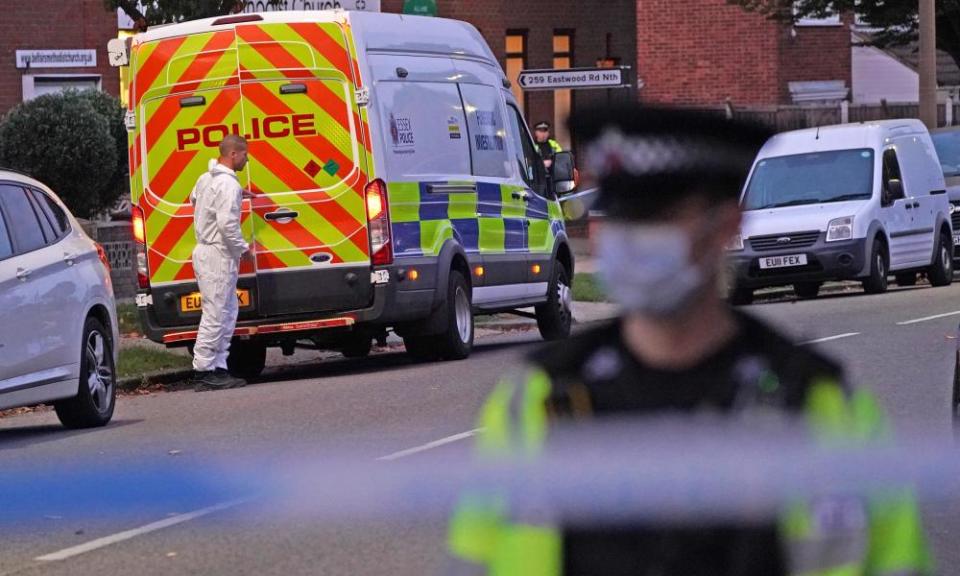What protection do MPs have – and how could they be made safer?

The killing of David Amess on Friday has intensified concerns about MPs’ safety as they go about their work. These are some of the issues that will be considered as their security is reviewed:
What measures are already in place to protect MPs?
Security at Westminster, where MPs spend part of their week, is visibly tight, with armed police patrolling the parliamentary estate, and security passes required to cross the perimeter.
A knife-wielding attacker nevertheless managed to get into the grounds at Westminster in March 2017 and fatally stab PC Keith Palmer before being shot dead.
When MPs are back in their constituencies up and down the UK, security is – perhaps inevitably – more lax.
A plan called Operation Bridger, involving the police and parliamentary authorities, was put into place in December 2015 after the fraught parliamentary debate on bombing Syria saw an upsurge in concern about threats of violence.
It allows for what ministers at the time called “advice and guidance regarding members’ security and a process to access funding for standardised security measures”.
MPs have a single point of contact at their local police force to provide advice, and many have had measures implemented such as panic buttons, bomb-proof letterboxes and toughened glass – particularly in the wake of the murder of Jo Cox in June 2016.
Why are MPs so exposed in their constituencies?
In part, it goes with the job: many MPs have said since Friday’s tragic events that they relish the face-to-face meetings with voters that take place at advice surgeries and other local events, and consider it to be a crucial part of their role.
As the Speaker of the House of Commons, Lindsay Hoyle, wrote in the Observer, “the very essence of being an MP is to help and be seen by our constituents. They are the people who elected us to represent them, so surely making ourselves available to them is the cornerstone of our democracy?”
The home secretary, Priti Patel, suggested on Sunday that there are some steps MPs can take to make these events safer, such as booking appointments and endeavouring to check who they are meeting beforehand; checking the venue they are attending; and ensuring they are not alone.
However, the shadow foreign secretary, Lisa Nandy, pointed out that for MPs with large rural constituencies, it will be hard to confine their surgeries to premises where security measures can be put in place, without leaving many constituents out of reach.
How might safety measures change in the wake of Friday’s attack?
Patel and Hoyle have both said security for MPs will be looked at following Friday’s events – and the home secretary has said the review will take place urgently.
Most MPs have already been contacted by their local police force to check up on their security concerns.
Patel said the next stage of the review would look at a wide range of potential measures, including the possibility of police protection at MPs’ surgeries, and even airport-style scanners at the door, though it is unclear how that would work in venues such as the church where Amess was meeting constituents on Friday.
Some MPs have already been offered police support when carrying out engagements. The Conservative backbencher Harriet Baldwin told the BBC on Sunday that a patrol car had parked outside her constituency surgery on Friday, when it was unclear whether Amess’s killing was part of a wider attack.
Another backbench Conservative MP Tobias Ellwood, who tried and failed to revive Palmer when he was stabbed in Westminster four years ago, suggested there should be a “pause” in face-to-face meetings while the security review is carried out.

 Yahoo Finance
Yahoo Finance 